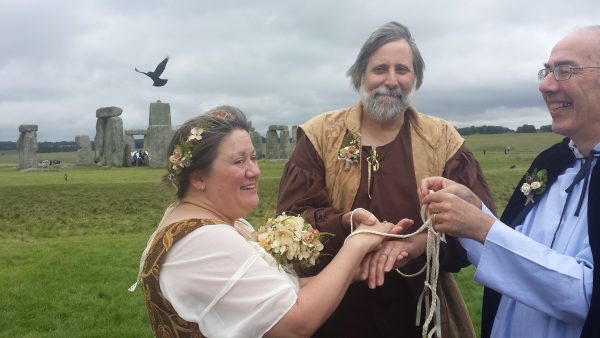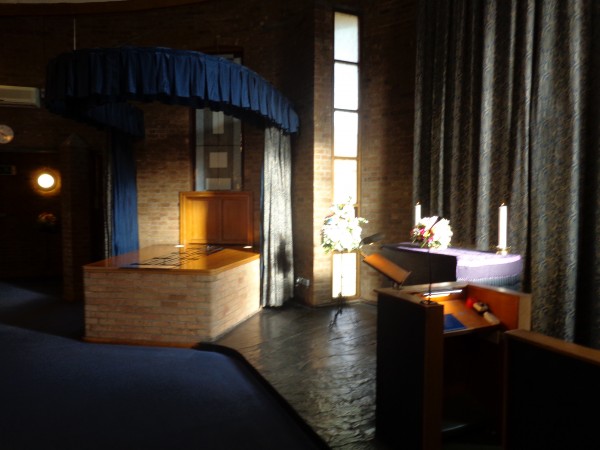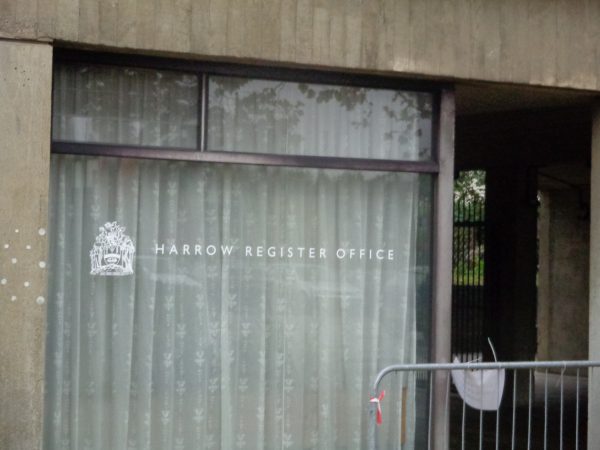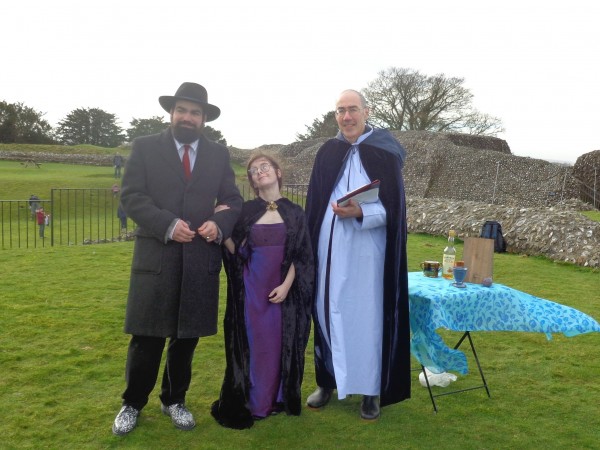
by Michael | Jun 30, 2020 | Blog
Who’d plan a major event at this time?
Off-putting as it may be – with regulations changing almost by the day and often ambiguous – people have not been deterred from arranging life-cycle events.
Although some have cancelled their wedding, most have been rearranging them.
The Latest Changes
You will probably have noted that weddings are now permissible again (obviously, subject to social distancing etc.). However, this good news is diluted by other realities.
Apparently, there is a serious shortage of registrars, so this is causing further delays. A number of people are therefore turning to civil celebrants so that they can at least have the service. They then book the legal ceremony at the register office whenever that is possible.
Another cause of delay is the venues. These have to consider risk assessments and may need to make major structural changes.
Assuming all is COVID-secure, here (based on the government’s guidelines this week) are some things you need to bear in mind for your wedding (in no particular order):
Important Considerations
The conditions I’m about to mention currently seem to extend only to full religious or register office services. There is no clarity about celebrant-led ceremonies. Probably, the same rstrictions apply.
Services should be kept as short as possible.
Religions may need to adapt traditional practice (eg avoiding processions).
Numbers attending receptions should not exceed 30 people. Social distancing should be observed between different households.
There can be no food or drink during a service, unless required for solemnisation.
If rings are to be exchanged, hands should be washed before and after. Rings are to be handled by as few people as possible.
If an infant is involved, it should be held by its parent/guardian or household member.
Noise (singing, shouting, playing music etc.) should be kept to a minimum. Spoken responses likewise.
Avoid instruments that are blown into. If singing/chanting is required, only one person should do this. Recordings should be used, not communal singing.
So there is – cautious – progress!
If you’d like to discuss working with a civil celebrant, then I’d love to have a chat with you.

by Michael | Jun 8, 2020 | Blog
The funeral industry took quite a bashing in Hannah Betts’ recent article in ‘The Telegraph Magazine’ (01.02.20) (with statistics provided by Sunlife).
It wasn’t
all bad news, but much of it was probably quite eye-opening.
In England in the last couple of years pre-COVID, there were over 500,000 deaths/year, and this is expected to increase to 565,000 by 2032. There are increasing space issues regarding burial which need to be met. However, c. 78% of UK funerals are now cremations.
Expenses
The average
cost of a basic UK funeral (not counting flowers and catering) was over £4,000
in 2019. That’s a huge increase since 2004, when it was less than £2,000.
For the
whole works, including professional fees, the average amounted to nearly £9,500.
Apart from burial or cremation fees, there are usually funeral director’s fees
to consider and officiant’s fees. If you’re having a memorial, this can be a
major expense (around £900) and catering costs an average of over £400. There
may also be venue hire. Smaller expenses (but they all add up) are Order of
Service booklets, doctor’s fees, limousine hire, flowers and the death notice.
However,
there’s now a groundswell towards choice. Things don’t have to be done the way
they ‘always’ have been. Whereas some people are fine with the Funeral
Directors in traditional top hat and tails, some people prefer informality.
Indeed, a direct cremation (no ceremony at all) is a cheap option (although not
for everyone).
Green
Ceremonies
Some Funeral
Directors offer budget ceremonies, but, again, it depends on what you want on
the day. There is a lot more awareness of ecology, and you can request green
burials with biodegradable coffins. Crematoria have improved massively and
emissions are cleaner, but carbon is still one of the by-products of the
process. Green or liquid cremations are much less damaging.
Embalming
(to preserve bodies to be viewed by relatives) requires use of formaldehyde for
each body, and this is a carcinogen.
Choice
At a cost,
you can choose unusual venues (such as golf courses) and use special hearses (like
camper vans or fire engines). The service can be personalised, both content,
tone and attire.
Many
funerals these days offer live-streaming facilities.
Add-ons
Basic burial
costs over £1,000 more than cremation on average, but this is region-dependent (it
costs some £4,000 more to be buried in London compared with Northern Ireland).
Summary
As a funeral celebrant, I am one of the “expenses”. Of course. I don’t believe I have to justify my fee, as I normally work with the bereaved to compile, in a short time, a celebration of life that entirely fits the bill. Then I conduct the service – usually, to the family’s (and guests’) complete satisfaction. It takes skill and empathy.
It seems right
that there are fees across the board, although some seem excessive. I suspect
that certain suppliers are taking advantage of clients’ vulnerability and
ignorance. However, I have worked with many who do a fantastic job and deserve
to be rewarded.
The great
thing is that now there is choice out there, and each person has the chance to
get value for their money. Hopefully, the funeral comes down to more than money
finally, but that’s certainly an issue that is rightly being addressed.
Michael can
put together and conduct a personalised ceremony. Feel free to contact him
directly.

by Michael | Aug 19, 2014 | Blog
What do I mean by the “best” ceremony?
Of course, no such thing exists. However, there are definitely ceremonies that will meet your needs and expectations better than others. If you have the choice – and a lot of people don’t realise there actually is choice out there – are you happy with the standard ceremony offered by your religious institution or by the Registry Office? Or might you prefer something tailor-made, that reflects your personal beliefs and desires?
Let’s look at the options, so that you can make that decision more easily. I’m going to talk about weddings here, but a lot of my remarks will apply to other ceremonies (such as Vow renewals or even funerals). I am assuming, incidentally, that you are marrying for love, rather than for legal reasons!
The religious option
There are a number of advantages for marrying in your church/synagogue/temple etc. You will probably be comfortable if you have your familiar priest; your family may well approve; you yourself may be happy remaining within your cultural traditions. On a practical level, the religious and legal parts will be combined if it’s an Anglican ceremony.
I had a religious wedding (my choice), so I have nothing against it whatever – except that it is a standard ceremony (same size fits all).
The church etc. wedding is not for everybody. You may not be allowed a full religious wedding if you are “marrying out”. Or perhaps you are uncomfortable with a religious service, especially if you opted out long ago.
What else is open to you?
Registry Office

The Registry ceremony comes at the other extreme to a religious service. It is quick and simple, probably lasting less than 15 minutes. It smacks a little of a ‘conveyor-belt’, but such a ceremony will suit some people well enough.
Of course, the service is standardised. But the main disadvantage is that, if you want just a little religion or ritual (either because you don’t feel happy cutting yourself off culturally or even because you don’t want to upset family or friends), that option is simply not available.
The third option

If you rule out the two choices mentioned above, you may be looking for a ceremony that appeals to you spiritually, personally and emotionally. A civil celebrant may offer what you are really looking for on your big day.
The service will be created for you in conjunction with your civil celebrant. (It will not cover the legal side, of course, but that is easily dealt with and your civil celebrant will be able to advise you).
Your ceremony will not be a standardised service, though it may contain many conventional elements, if you so choose. The point is that you are free to put in whatever readings, music or rituals you want (your celebrant will offer ideas) and choose whoever you want to participate.
This way, your ceremony can be a reflection of you both. It can be as romantic as you choose, and should be a memorable, meaningful experience that you – and your guests – will treasure long after the event itself.
So don’t go thinking that there’s no third option – there is. And it’s really viable. Just ask someone who knows!
Why not enjoy the “best” ceremony, after all!
Michael can help prepare and conduct a tailor-made civil ceremony in or around London or, indeed, Europe.
by Michael | Jul 22, 2013 | Blog
I like a wedding as much as the next man or woman – and I should: I’m a civil celebrant. But there are certain ingredients that can contribute to making a wedding very forgettable (or, sometimes, for the wrong reasons, unforgettable!).
Location
I have been to some stunning settings for weddings, and the atmosphere has often been brilliant.
But I write as an Englishman. It is not so fun – especially in our winter – attending a wedding at a mill in a remote spot. The Satnav can’t find it, and it has rained so much in the preceding days that the muddy access lane is only navigable for a 4 x 4. And I don’t possess one.
Socialising
Quite frequently, you know very few people, and find yourself thrown together at the service or during the reception with people you would not normally choose to get to know. The conversation often dries up after each person has answered the inevitable “How do you know the bride/groom?” question.
Or maybe you end up with the person who won’t stop talking for a moment.
On the other hand, the seating arrangements may throw you up next to somebody you already know and whose company is embarrassing – an old flame, perhaps?
I’ve had complete strangers whip out their phones and show me pictures of relatives I have no desire to meet. People have expressed right-wing sentiments that Gengis Khan would have hesitated to utter, and I have had to nod politely. I’ve come across some awful bores. And, of course, talking to me might have been the last thing my dinner neighbours would have chosen.
Dancing and music
I can’t be the only person in the world who cringes when it comes to the dancing, can I?
It’s bad enough watching the mother and groom (say) dance, but when it’s the public’s turn, I confess that I really don’t want to. It’s probably hot in the hall, so that might do as an excuse, but, in truth, my sense of rhythm is not impressive, and if I do dance, I spend my time assuming everybody is sniggering about me. Probably paranoia, but that’s how I feel.
And then, if I have found somebody interesting to talk to, I can’t do it because the music is too loud.
When I think about it, I’m not sure if I should be encouraging people to have weddings!




